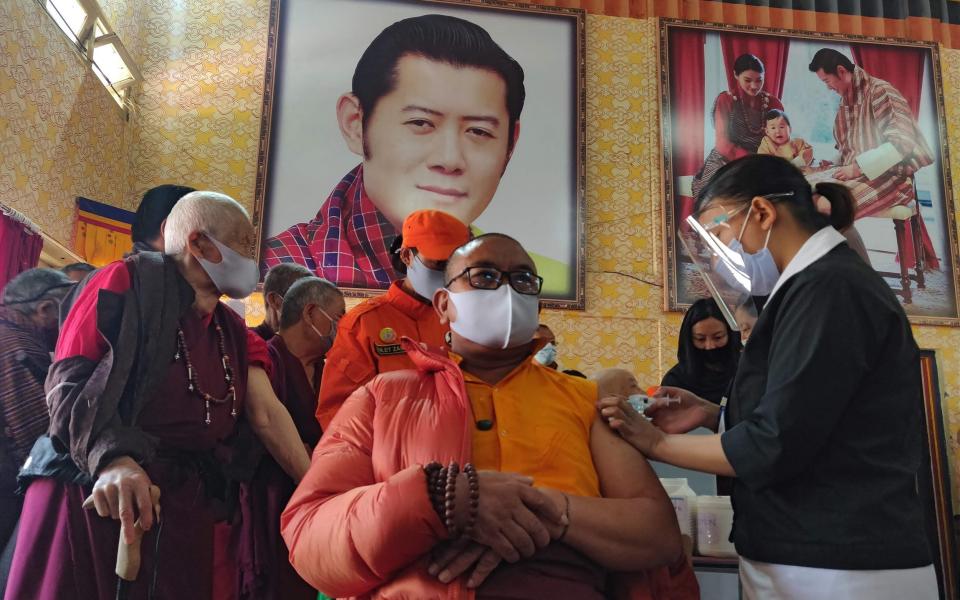Bhutan delivers second doses of vaccine to nearly entire adult population in one week

The tiny Himalayan kingdom of Bhutan successfully administered second Covid-19 vaccines to most of its eligible population in just one week, following the donation of doses from the World Health Organization’s global vaccine sharing programme, Covax.
Experts say the feat is a clear example of how Covax, which has suffered from supply problems since vaccines were first rolled out, can ensure equitable access to vaccines if developed countries share doses.
“We really need a world in which the countries which have surplus vaccines really donate to those countries that haven’t received [doses] so far,” said Will Parks, Unicef’s Bhutan representative.
“And, if there’s anything that I hope the world can learn, is that a country like Bhutan with very few doctors, very few nurses but a really committed king and leadership in the government mobilising society - it’s not impossible to vaccinate the whole country.”
Fewer than one per cent of the 530 million doses pledged to Covax have been delivered, with many wealthier countries prioritising the completion of their domestic vaccination campaigns or stockpiling doses ahead of further anticipated waves of Covid-19.
But, two weeks ago, Bhutan, which is home to 770,000 people, received 500,000 doses of Moderna’s Covid-19 vaccine from the United States through Covax. This followed the donation of hundreds of thousands of other doses from Denmark, Croatia and Bulgaria to Bhutan via Covax.
This allowed Bhutan to complete its vaccination campaign, which had been paused for three months after neighbouring India halted exports to meet its own domestic demand.
More than 450,000 doses were administered over the past week in Bhutan, which equates to more than 85 percent of its adult population. Over 5,000 Pfizer doses were also distributed through Covax for Bhutanese children.
Bhutan’s first round of Covid-19 vaccinations also attracted international attention, as the country vaccinated most of its eligible adult population in just two weeks in April.
While its small population size certainly helped in its rapid roll out, its efforts were attributed to robust public healthcare planning. Helicopters were even used to reach Bhutanese citizens living in remote mountainous areas.
Several thousand citizen volunteers known as "desuups" crossed the geographically diverse country, often by foot, to ensure each Bhutanese citizen reported for their Covid-19 vaccine appointment.
However, there were growing fears the failure to provide its population with a second dose would lead to a resurgence in Covid-19 cases. Bhutan had reported a gradual rise in new infections in June.
Protect yourself and your family by learning more about Global Health Security

 Yahoo News
Yahoo News 